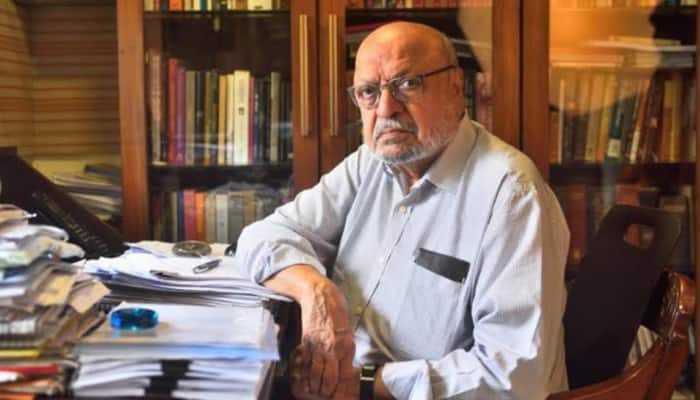Nobel Peace Laureate Henry Kissinger A 'War Criminal'? His Role In THESE 10 Global Crises
Henry Kissinger’s legacy is a subject of debate, as he was praised for his diplomatic achievements in some regions, but also criticized for his involvement in human rights violations, wars, and coups in others.
Trending Photos
) Reuters
Reuters New Delhi: Henry Kissinger, who died on November 29, 2023 at the age of 100, was one of the most influential and controversial figures in American foreign policy. He served as the national security advisor and the secretary of state under the administrations of Richard Nixon and Gerald Ford, and played a key role in shaping the relations between the US and the rest of the world during the Cold War era. He was also a Nobel Peace Prize laureate, a geopolitical consultant, and a prolific author.
Kissinger’s legacy is a subject of debate, as he was praised for his diplomatic achievements in some regions, but also criticized for his involvement in human rights violations, wars, and coups in others. Here are 10 global crisis that marked his reign as the top US diplomat.
The Vietnam War
Kissinger inherited the war from his predecessors, and tried to end it through negotiations and military pressure. He signed the Paris Peace Accords in 1973, which led to the withdrawal of US troops and the release of American prisoners of war. However, the war continued until 1975, when South Vietnam fell to the communist North. Kissinger shared the Nobel Peace Prize with Le Duc Tho, the chief negotiator for North Vietnam, but the latter declined the award. Kissinger’s role in the war was criticized for prolonging the conflict and causing civilian casualties through bombing campaigns in Cambodia and Laos.
The Opening Of China
Kissinger made a secret trip to Beijing in 1971, paving the way for Nixon’s historic visit the following year. He established diplomatic contacts with the People’s Republic of China, which had been isolated from the West since the communist revolution in 1949. He also helped to ease tensions between China and the Soviet Union, which were engaged in a border dispute. Kissinger’s opening to China was seen as a strategic move to balance the Soviet power and to create a new partner for the US in Asia.
The Yom Kippur War
In 1973, Egypt and Syria launched a surprise attack on Israel on the Jewish holy day of Yom Kippur, hoping to regain the territories they had lost in the 1967 Six-Day War. Kissinger led the US efforts to support Israel with military aid and diplomatic pressure, while also trying to prevent a direct confrontation with the Soviet Union, which backed the Arab states. He also initiated a series of shuttle diplomacy trips between the Middle East capitals, brokering ceasefires and disengagement agreements. Kissinger’s role in the war was praised for averting a wider war and for laying the groundwork for the Camp David Accords in 1978.
The Chilean Coup
Kissinger was involved in the covert operations to undermine the socialist government of Salvador Allende in Chile, who was elected in 1970. Kissinger feared that Allende would align Chile with the Soviet bloc and threaten the US interests in Latin America. He supported the CIA’s efforts to destabilize the economy, to fund the opposition, and to encourage a military coup. In 1973, General Augusto Pinochet overthrew Allende and established a brutal dictatorship that lasted until 1990. Kissinger’s role in the coup was condemned for violating the principle of democracy and for enabling human rights abuses.
The Cyprus Crisis
In 1974, Turkey invaded Cyprus, a Mediterranean island divided between Greek and Turkish Cypriots, following a coup by the Greek military junta that sought to unite the island with Greece. Kissinger, who was preoccupied with the Watergate scandal and the resignation of Nixon, failed to prevent the invasion and the subsequent partition of the island. He also faced criticism for suspending the US arms embargo on Turkey, which was a NATO ally, despite the opposition from Congress and the European allies. Kissinger’s role in the crisis was blamed for damaging the US credibility and for prolonging the conflict in Cyprus.
The Angola Civil War
In 1975, Angola gained independence from Portugal, but soon plunged into a civil war between three rival factions, each supported by different foreign powers. Kissinger backed the National Union for the Total Independence of Angola (UNITA), which was allied with South Africa and China, against the Popular Movement for the Liberation of Angola (MPLA), which was backed by the Soviet Union and Cuba. He authorized the CIA to provide covert aid and mercenaries to UNITA, hoping to prevent the spread of communism in Africa. However, his intervention failed to change the outcome of the war, and the MPLA emerged as the dominant force in Angola. Kissinger’s role in the war was criticized for violating the principle of self-determination and for fueling the violence.
The Iranian Revolution
In 1979, a popular uprising overthrew the US-backed Shah of Iran, Mohammad Reza Pahlavi, and replaced him with a theocratic regime led by Ayatollah Ruhollah Khomeini. Kissinger had been a staunch supporter of the Shah, who was seen as a key ally in the Middle East and a bulwark against the Soviet influence. He had also helped to modernize the Iranian military and economy, and to mediate the disputes between Iran and its neighbors. Kissinger’s role in the revolution was accused of ignoring the human rights violations and the social grievances under the Shah, and of alienating the Iranian people and the Islamic world.
The Soviet Invasion Of Afghanistan
In 1979, the Soviet Union invaded Afghanistan, a neighboring country that had been undergoing a communist revolution since 1978. Kissinger, who was no longer in office, but still influential, urged the US to respond firmly to the Soviet aggression, which he saw as a threat to the global balance of power and to the US interests in the region. He supported the Carter administration’s decision to impose sanctions on the Soviet Union, to boycott the 1980 Moscow Olympics, and to provide covert aid to the Afghan mujahideen, who were fighting against the Soviet occupation. Kissinger’s role in the invasion was praised for defending the principle of sovereignty and for containing the Soviet expansion.
The Iran-Iraq War
In 1980, Iraq, led by Saddam Hussein, invaded Iran, hoping to exploit the chaos and the weakness of the post-revolutionary regime. Kissinger, who had established a working relationship with both countries during his tenure, tried to mediate the conflict, which lasted for eight years and claimed more than a million lives. He advocated for a policy of dual containment, which aimed to prevent either side from achieving a decisive victory and to maintain the regional stability. He also supported the US decision to provide limited aid and intelligence to both sides, while trying to prevent the escalation of the war. Kissinger’s role in the war was controversial for being pragmatic and cynical, and for ignoring the humanitarian consequences.
The Falklands War
In 1982, Argentina, ruled by a military junta, invaded the Falkland Islands, a British overseas territory in the South Atlantic. Kissinger, who had maintained close ties with both countries, initially sided with Argentina, which he regarded as a strategic partner in Latin America and a counterweight to the Soviet influence. He also criticized the British response, which he considered disproportionate and imperialistic.
Stay informed on all the latest news, real-time breaking news updates, and follow all the important headlines in india news and world News on Zee News.
Live Tv







)
)
)
)
)
)
)
)
)
)
